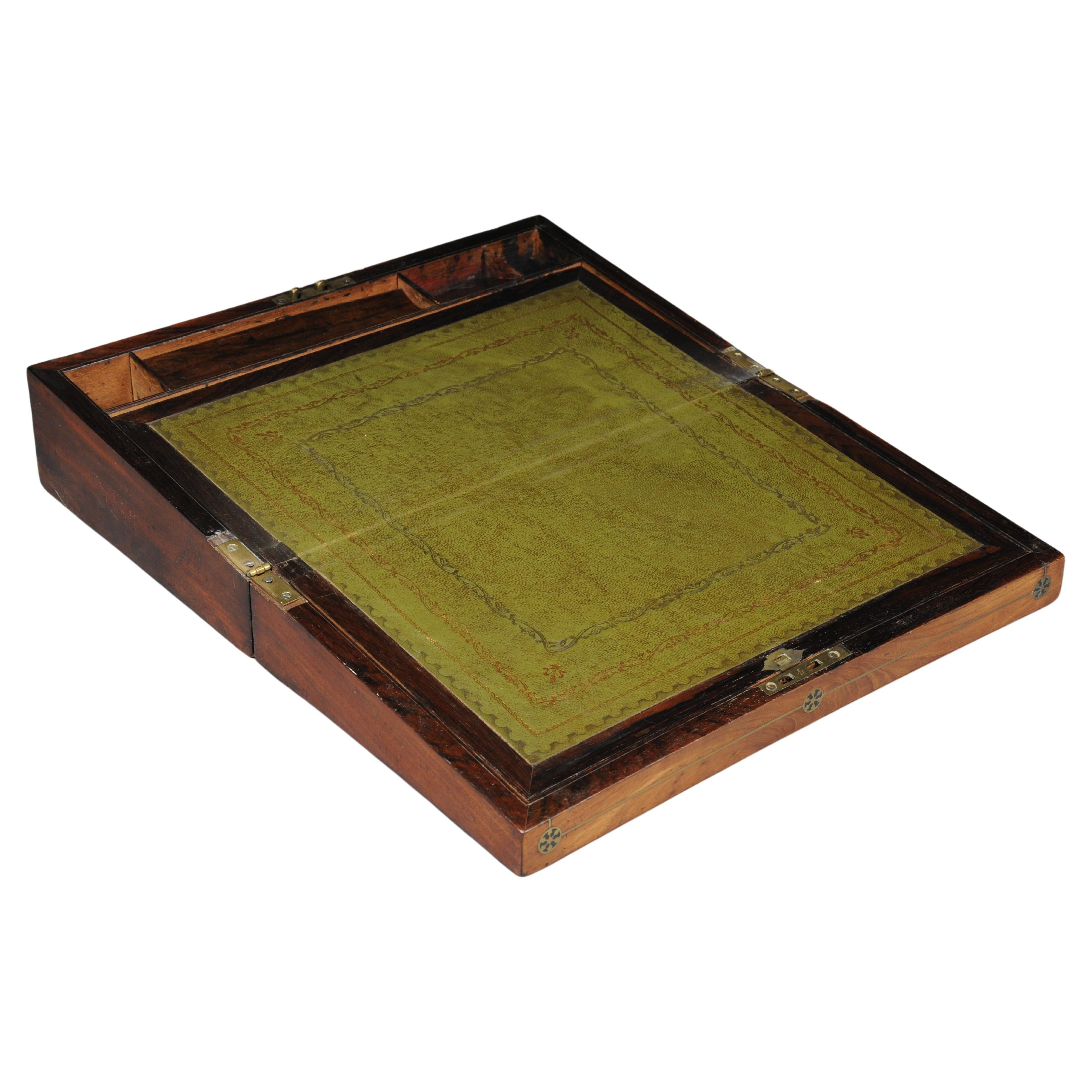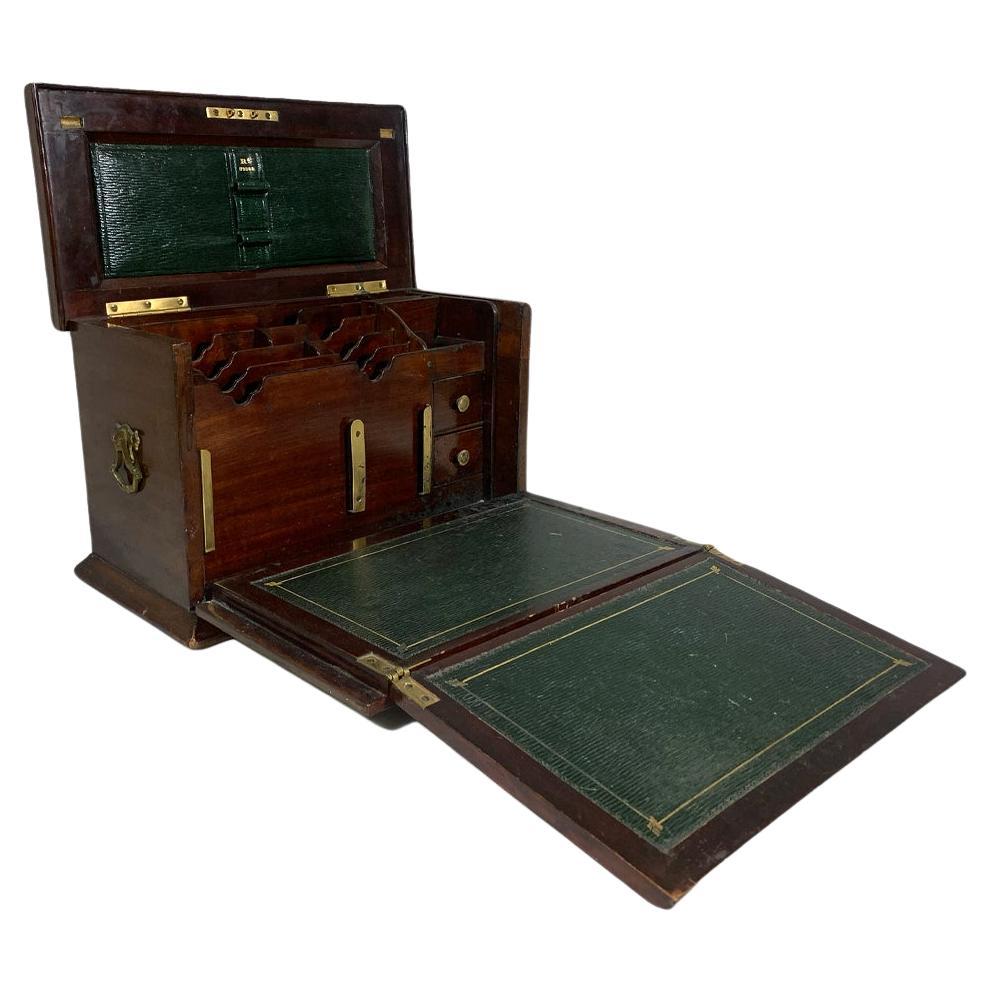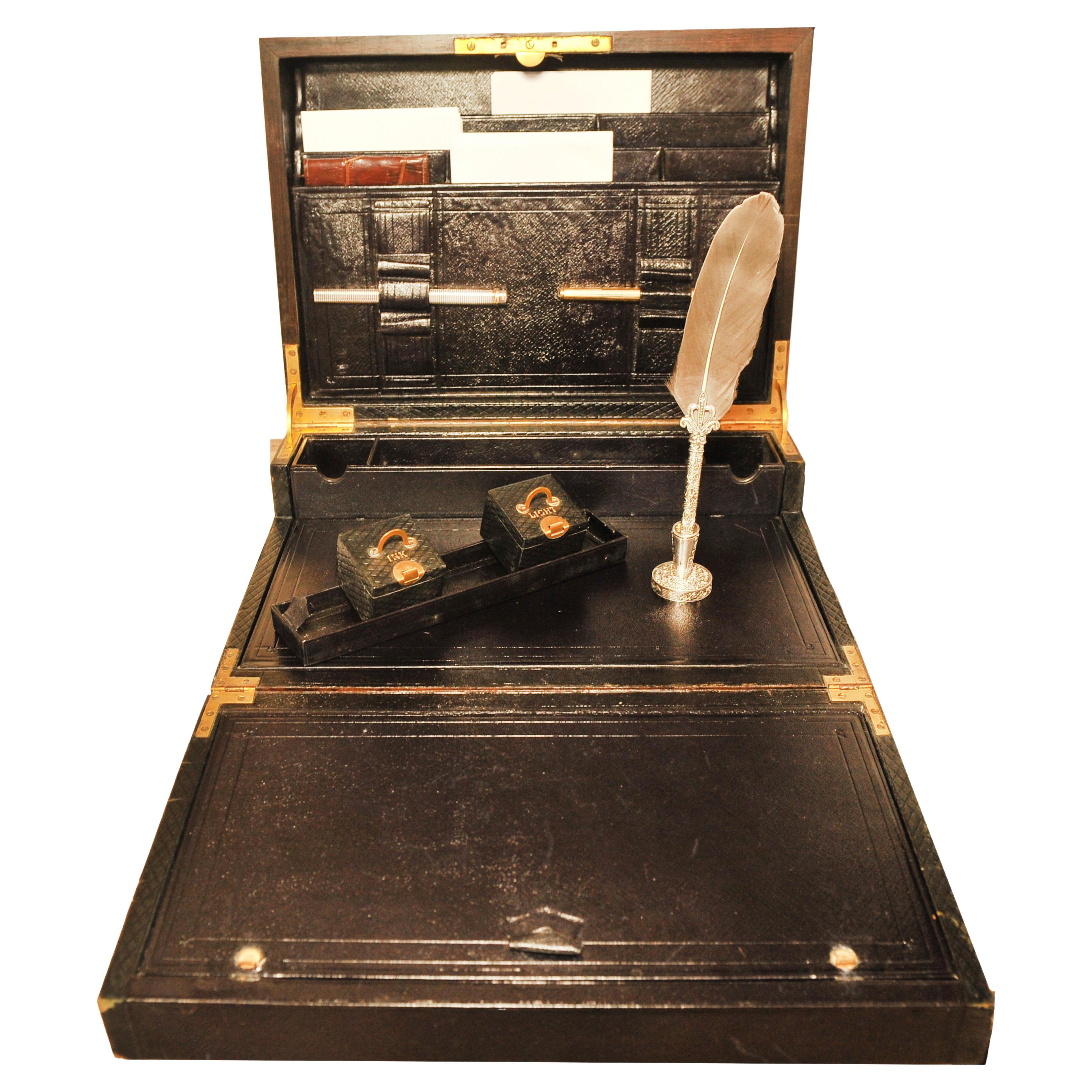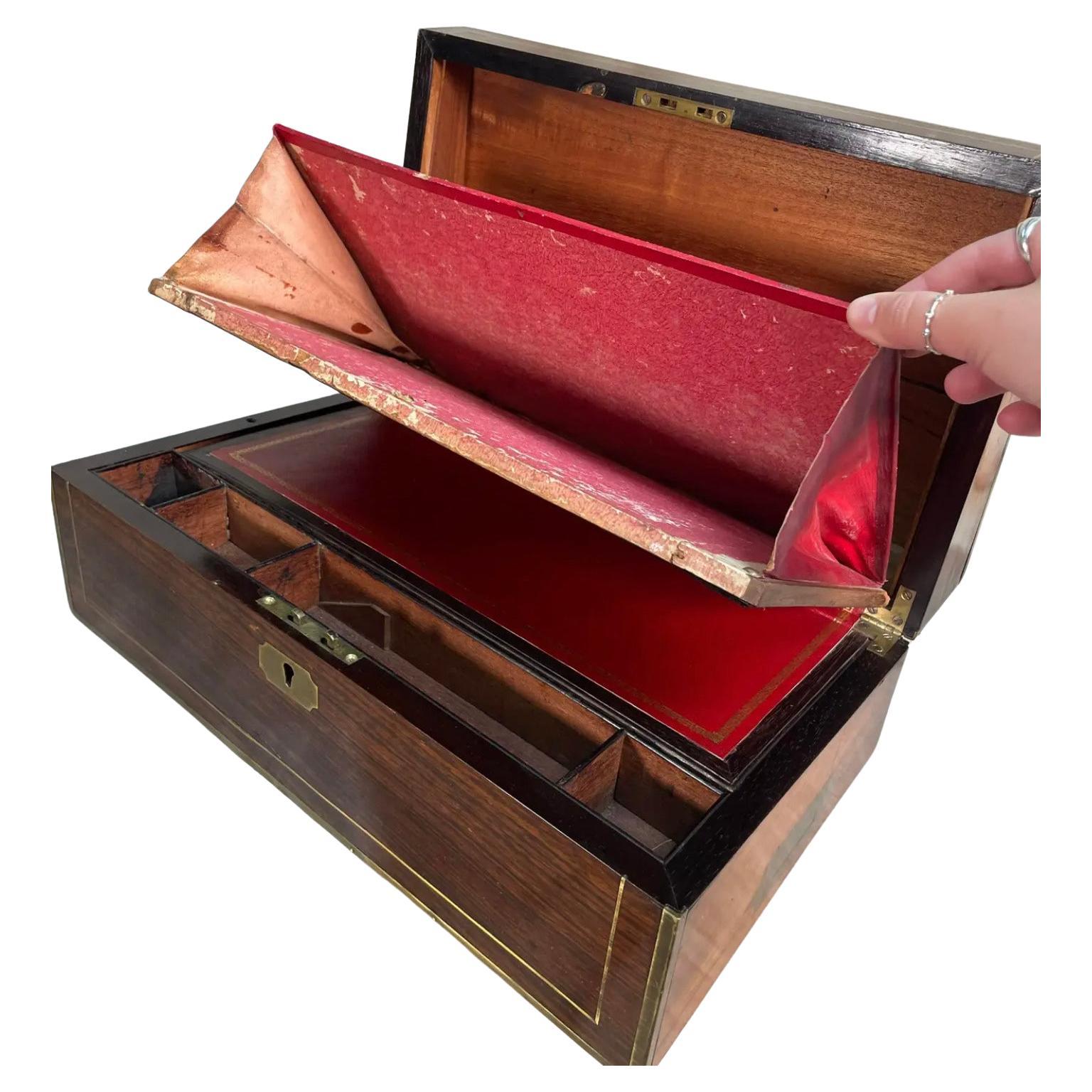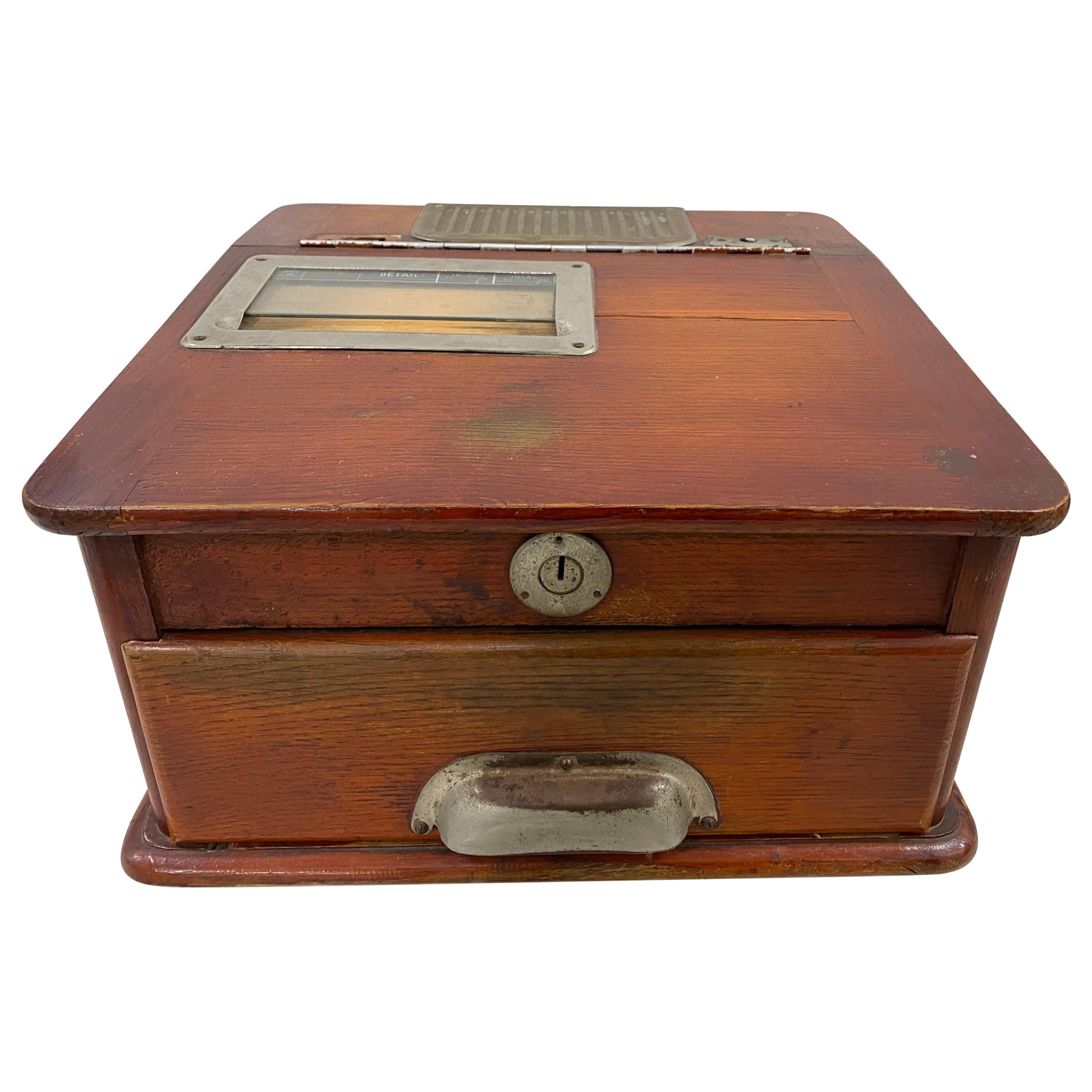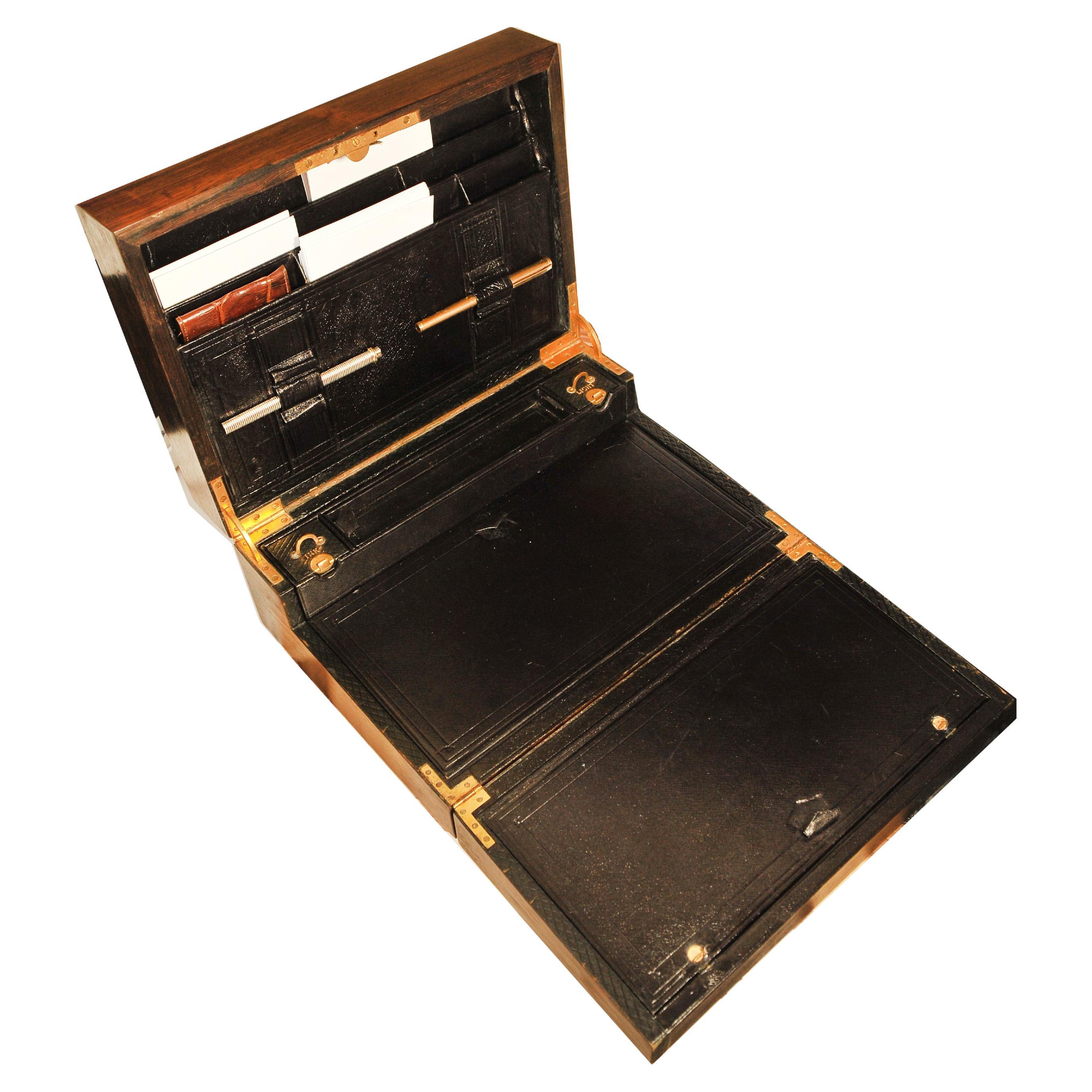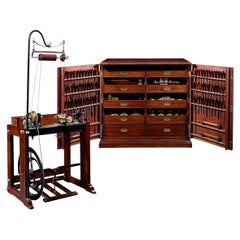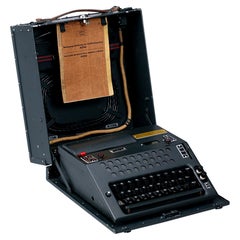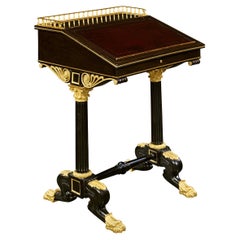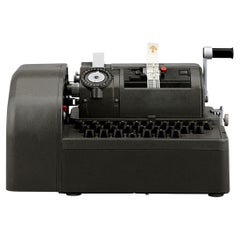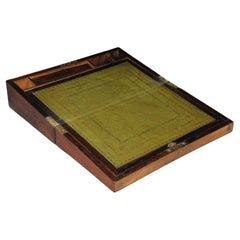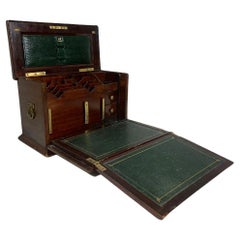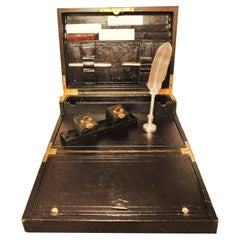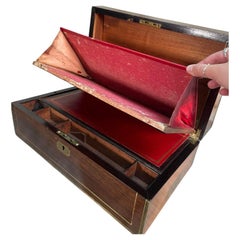Items Similar to Portable Copying Machine by James Watt & Co.
Want more images or videos?
Request additional images or videos from the seller
1 of 6
Portable Copying Machine by James Watt & Co.
$128,500
£96,975.42
€111,022.19
CA$181,227.61
A$198,965.31
CHF 103,800.62
MX$2,407,757.21
NOK 1,300,979.72
SEK 1,225,864.94
DKK 828,751.02
About the Item
Considered the first step into the world of modern photocopying, the copying machine was among the first widely used devices to successfully produce an exact copy of an original written work. Designed and patented in 1780 by one of history’s greatest inventors, James Watt, the copying machine was the only device in the 18th century that was able to duplicate letters; this particular model was also among the first portable copying machines ever made.
James Watt (1736-1819) is considered one of the greatest inventors of all time. Legendary today for his work on the steam engine, he spent much of his later life devising small inventions such as this. Anecdotally, the idea for the machine was a result of Watt tirelessly copying correspondence between himself and his business partner, the great silversmith Matthew Boulton. The machine itself was ingenious in its simplicity. The letter to be copied was written in a special gelatinous ink and then placed over a piece of tissue paper. Pressure from the roller impressed upon the tissue paper a mirrored replica of the letter, which could then be reversed and read from the opposite side.
Patented in 1780, the device was eagerly sought by important businessmen and statesmen alike. By the end of the first year of production, over 630 machines had been sold, and for the next century, Watt’s machine and the replicas it inspired dominated the copying business. Although many were sold in the 18th century, this is the first working model we have ever seen for sale.
Perhaps the most enthusiastic and well-known user of the machine was George Washington, who utilized this exact version of the copying machine. His device can still be found to this day on display at Mount Vernon. Thomas Jefferson was another avid user, who owned several versions - even one of his own design - and is said to have used it daily. Jefferson extolled the benefits of the copying machine to his friend and eventual presidential successor, James Madison, as well as Charles Willson Peale. One of Jefferson’s machines, a later model, is still held and prominently displayed at his Monticello home.
The present piece is housed in its original mahogany lap desk, which is in and off itself a remarkable work of craftsmanship. Designed for transport, each piece can be dismantled and stored away in its various storage drawers. These compartments also contain writing tools, including an ink bottle and damping box. Designed down to the smallest detail, the full extent of Watt’s genius is evident in this remarkable machine.
Silver oval label impressed “J. Watt & Co. Patent”
Circa 1795
6” high x 20 1/2” wide x 14” deep
References:
Thomas Jefferson and his Copying Machines, 1984, by S.A. Bedini, pp. 10-11 & 26-27
“James Watt and his copying machines” in Proceedings of the British Association of Paper Historians 4th Annual Conference, 1993, R. Hills
Before Photocopying. The Art and History of Mechanical Copying 1780-1793, 1999, B. Rhodes and W. Wells Streeter, pp.8-11
The Lunar Men, 2002, J. Uglow, pp.306-7
How James Watt Invented the Copier: Forgotten Inventions of Our Great Scientists, 2011, R. Schils, pp. 39-42
- Creator:James Watt (Maker)
- Dimensions:Height: 6 in (15.24 cm)Width: 20.5 in (52.07 cm)Depth: 14 in (35.56 cm)
- Style:Other (In the Style Of)
- Materials and Techniques:
- Place of Origin:
- Period:
- Date of Manufacture:18th Century
- Condition:
- Seller Location:New Orleans, LA
- Reference Number:Seller: 30-66181stDibs: LU89118676913
About the Seller
5.0
Recognized Seller
These prestigious sellers are industry leaders and represent the highest echelon for item quality and design.
Established in 1912
1stDibs seller since 2010
112 sales on 1stDibs
Typical response time: 8 hours
- ShippingRetrieving quote...Shipping from: New Orleans, LA
- Return Policy
Authenticity Guarantee
In the unlikely event there’s an issue with an item’s authenticity, contact us within 1 year for a full refund. DetailsMoney-Back Guarantee
If your item is not as described, is damaged in transit, or does not arrive, contact us within 7 days for a full refund. Details24-Hour Cancellation
You have a 24-hour grace period in which to reconsider your purchase, with no questions asked.Vetted Professional Sellers
Our world-class sellers must adhere to strict standards for service and quality, maintaining the integrity of our listings.Price-Match Guarantee
If you find that a seller listed the same item for a lower price elsewhere, we’ll match it.Trusted Global Delivery
Our best-in-class carrier network provides specialized shipping options worldwide, including custom delivery.More From This Seller
View AllOrnamental Turning Lathe, No. 1906 by Holtzapffel & Co
Located in New Orleans, LA
An essential tool in the creation and finishing of furniture, this 19th-century English ornamental lathe is an object of beauty in and of itself. The extraordinary machine...
Category
Antique Late 19th Century English Victorian Scientific Instruments
Materials
Brass, Iron
NEMA Cipher Machine
Located in New Orleans, LA
The Swiss NEMA cipher machine is an extraordinary part of both military and mechanical engineering history. Known as the Neue Machine, or “New Machine,” the NEMA was developed by Zel...
Category
20th Century Swiss Historical Memorabilia
Materials
Metal, Wire
$34,500
French Charles X Writing Desk
Located in New Orleans, LA
The epitome of French elegance and style, this French Charles X-style writing desk takes the classic design of English Davenport desks to new heights. The table is exquisitely crafted of the finest Ceylon ebony...
Category
Antique 19th Century French Charles X Desks and Writing Tables
Materials
Bronze
Cx-52 Model Swiss Cipher Machine
Located in New Orleans, LA
A triumph of ingenuity and craftsmanship, this Swiss cipher machine is a fabulous example of mechanical precision. Cipher machines are used to encrypt a...
Category
20th Century Swiss Other Historical Memorabilia
Materials
Metal
French Nécessaire de Voyage
Located in New Orleans, LA
This exceptional and rare French nécessaire de voyage is almost certainly the work of the highly respected Parisian manufacturer Pierre-Dominique ...
Category
Antique Early 19th Century French Empire Historical Memorabilia
Materials
Crystal, Silver
$78,500
Victorian Jockey Scale
Located in New Orleans, LA
Jockey Scale
Late 19th Century
This Victorian jockey scale is an iconic piece of horse racing history. These handsome scales were used at the tracks to determine the jockey’s weight...
Category
Antique Late 19th Century English Victorian Sports Equipment and Memorab...
Materials
Brass
$34,500
You May Also Like
Very rare English travel writing desk/secretary chest around 1860
Located in Berlin, DE
Very rare English travel writing desk/secretary chest around 1860
Solid mahogany lidded box that can be converted into a travel writing desk/travel secretary with a green leather to...
Category
Antique 1860s English Desk Sets
Materials
Brass
END OF THE 19th CENTURY ENGLISH TRAVELING WRITING DESK
Located in Firenze, FI
This solid mahogany travel desk is a fine piece of English manufacture from the late 19th century. Made with high quality mahogany wood, it has an elegant and refined appearance. The...
Category
Antique Late 19th Century English Desk Sets
Materials
Leather, Wood
Antique English Victorian Bramah Leather Fold-out Stationary Writing Desk
Located in Reading, Berkshire
A Beautiful & Luxurious Handcrafted Victorian Bramah Fold-out Travelling Writing Companion With Fitted Leather Interior, Ceramic Blotting Tablets.
Complete with Beautifully Designed...
Category
Antique 19th Century British Victorian Desk Sets
Materials
Brass
$4,466 Sale Price
40% Off
Free Shipping
19th Century Laptop
Located in Los Angeles, CA
This 19th century laptop is also known as a writing slope, or a lap desk! It became wildly popular in the 19th century because a "laptop" provided an expansive flat writing surface t...
Category
Antique 19th Century British Victorian Desk Sets
Materials
Metal
$1,400
19th Century French Cash Register
Located in San Francisco, CA
19th century French cash register
A fine old antique register for display
Measures: 16" wide x 17" deep x 9" high
Good antique condition.
Category
Antique 19th Century French Historical Memorabilia
Materials
Wood
Antique Victorian English Bramah Leather Fold-out Correspondence Writing Desk
By Joseph Bramah
Located in Reading, Berkshire
A Beautiful & Luxurious Handcrafted Victorian Bramah Hardwood Fold-out Travelling Writing Companion With Fitted Leather Interior, Ceramic Blotting Tablets.
Complete with Beautifully ...
Category
Antique 19th Century British Victorian Desk Sets
Materials
Brass
$2,715 Sale Price / set
62% Off
Free Shipping
More Ways To Browse
Antique Office Machines
Mahogany Lap Desk
Antique Copy Machine
Antique Furniture Logos
Antique Leather Chaps
Antique Masonic Memorabilia
Antique Mercury Glass Tree Topper
Antique Metal Stencils
Antique Railway Memorabilia
Bird Christmas Ornament
Car Badge
Coronation Flag
Enterprise Coffee Grinder
General Patton
Gettysburg Furniture
Glass Mushroom Ornament
Hand Crank Sewing Machine
Keep Em Flying
